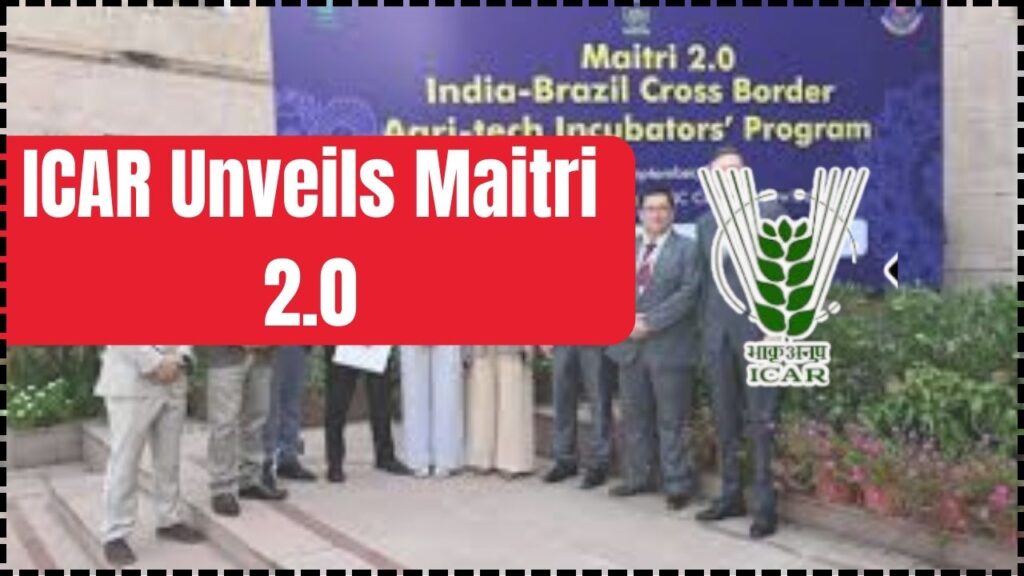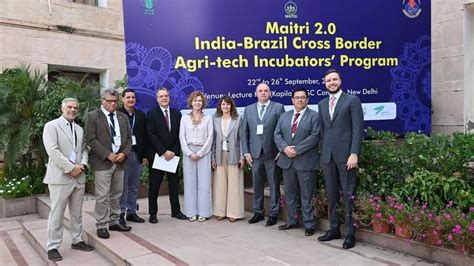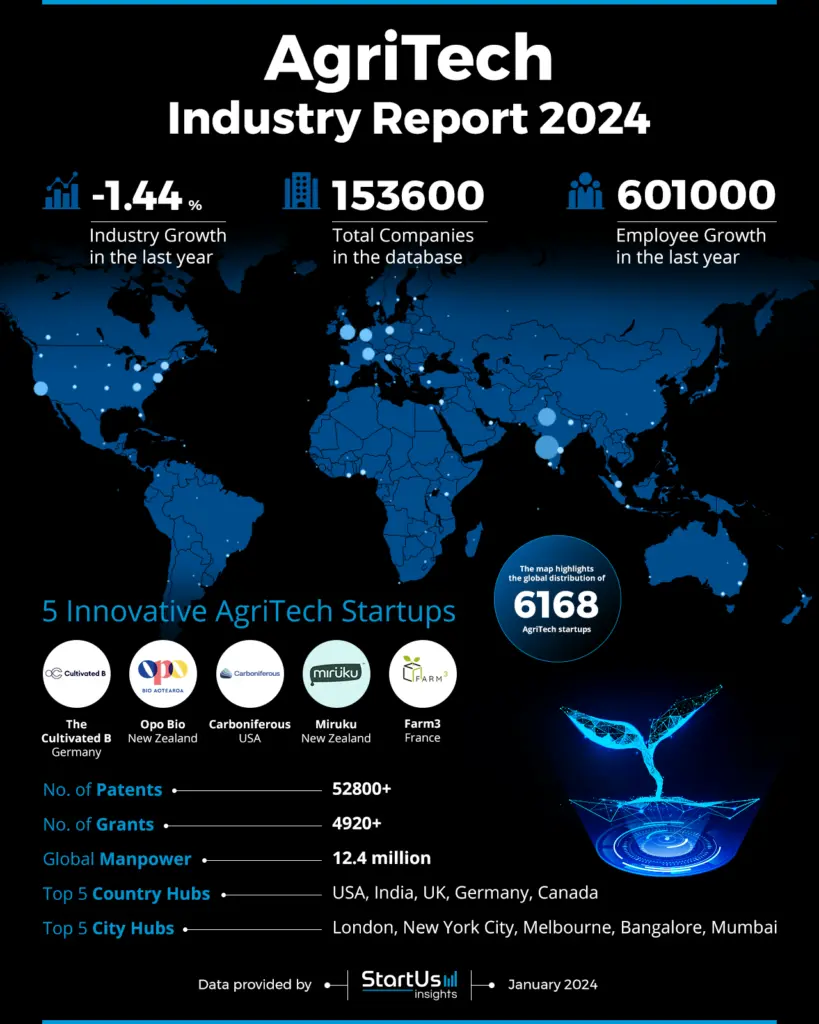ICAR Unveils Maitri 2.0: When it comes to farming innovation that can really turn heads, the Indian Council of Agricultural Research (ICAR) just rolled out a major initiative: Maitri 2.0. This second edition of the India-Brazil agritech collaboration is set to revolutionize agriculture by combining the strengths of two global agricultural giants. Whether you’re a farmer in the heartland, a startup innovator, or a policymaker looking for solutions, this detailed guide will walk you through what Maitri 2.0 is, why it matters, and how it impacts the future of farming globally. Launched in New Delhi in September 2025, Maitri 2.0 is built on decades of agricultural cooperation between India and Brazil, two nations that feed billions. This cross-border incubator program is designed to strengthen startup ecosystems, promote co-creation of agri-technologies, and deliver sustainable, climate-smart farming solutions. Let’s unpack its potential to transform agriculture for everyone involved.
ICAR Unveils Maitri 2.0
Maitri 2.0 is a powerful leap in global agriculture innovation, born from a rich India-Brazil friendship fostered over decades. By connecting startups, researchers, and farmers, this program is shaping a smarter, greener, and more profitable future for farming worldwide. Whether you’re in the field or the boardroom, Maitri 2.0’s focus on innovation, sustainability, and collaboration makes it a cornerstone for food security in an uncertain world.

| Feature | Details |
|---|---|
| Program Launch Date | September 2025, New Delhi, India |
| Collaborating Partners | Indian Council of Agricultural Research (ICAR), Brazilian EMBRAPA, startups, research bodies |
| Goals | Boost bilateral innovation, startup incubation, sustainable agriculture |
| Supported Innovations | 400+ Indian agritech startups nurtured |
| Patent Growth | 74 patents in 1996 to 1,800+ annually |
| Licensing Agreements | Over 5,000 enabling tech commercialization |
| Focus Areas | Digital agriculture, climate-smart farming, value chain development |
| Strategic Significance | Strengthens global food security efforts |
| Official Information | ICAR Maitri 2.0 |
The Historical Soil: ICAR Unveils Maitri 2.0
The roots of Maitri 2.0 reach back 77 years—a testament to a longstanding agricultural friendship between India and Brazil. Both countries share huge agricultural footprints; India is the world’s second-largest producer of food grains, and Brazil is a major global exporter of soybeans, beef, and sugar. Their joint efforts go beyond trade, deep into research, technology transfer, and policy dialogues.
This rich collaboration intensified across global forums such as BRICS and G20, where both nations push for food security and sustainable development. The ICAR–EMBRAPA MoU (Memorandum of Understanding) sealed in recent years marks a milestone in this journey, setting the stage for deep agritech cooperation.
Why Maitri 2.0 Makes Farming Smarter?
Farmers today face mounting problems: unpredictable weather, declining soil health, rising input costs, and volatile markets. Maitri 2.0 is like the ultimate “farm tech buddy system”. It harnesses cutting-edge innovations to build resilience, boost productivity, and reduce environmental harm.
ICAR’s journey tells the story: from just 74 patents in 1996 to over 1,800 annually now, backed by incubation centers nurturing startups and innovations. Over 5,000 licensing agreements have turned research into usable tech. Maitri 2.0 scales this success to a binational level, making agri-tech solutions faster, broader, and tougher.

Agriculture Powerhouse Statistics
Consider these numbers that cement the importance of India-Brazil collabs:
- India harvests over 278 million tonnes of cereals yearly (USDA data), sustaining 1.4 billion people.
- Brazil’s 2024 agricultural exports hit a staggering $100 billion, dominating global soybean and beef markets.
- The synergy of their staples feeds over half the globe, making breakthroughs in their farming systems a worldwide priority.
To keep these numbers growing in the face of climate change, Maitri 2.0 is a proactive step.
How ICAR Unveils Maitri 2.0 Works: The Four-Step Roadmap
Step 1: Building Strong Incubation Ties
Maitri 2.0 links startups and incubators across both countries, giving entrepreneurs access to global markets, mentoring, and technical support. It’s about growing a vibrant agritech ecosystem making the best of each country’s expertise.
Step 2: Sharing Tech & Knowledge
Digital tools, seed varieties, climate-resilience tech—these innovations cross borders freely. For example, Brazil’s AI-powered pest detection app might be fine-tuned by Indian developers to better suit subcontinental pest challenges.
Step 3: Co-Incubating New Ventures
Joint incubations mean startup teams from India and Brazil work side-by-side, building pipelines that enhance commercialization and market-ready solutions.
Step 4: Getting Tech Into Farmers’ Hands
The ultimate goal is practical: farmers equipped with climate-smart seeds, efficient irrigation tech, or supply chain innovations that improve incomes and sustainability.
The Players: Stakeholders Who Gain
Farmers
Access to cutting-edge technologies like improved seeds, weather forecasting apps, and soil health analytics means higher yields and better livelihoods. Climate-resilience becomes a reality instead of a hope.
Startups & Innovators
This joint program is a launchpad: funding, mentorship, and cross-border market access provide a fertile ground for agritech startups to thrive and scale.
Policymakers & Industry Leaders
Maitri 2.0 delivers a collaborative model helping governments and corporates frame better policies and scale sustainable practices while enhancing food system resilience.
Tackling the Big Agriculture Challenges
Maitri 2.0 confronts:
- Climate Change Threats: Drought, floods, heat stresses are addressed through resilient crop varieties and smart water management tools.
- Economic Pressures on Farmers: Technology cuts input waste and ensures better prices via efficient value chains.
- Food Security: Increasing agricultural productivity sustainably is non-negotiable to feed growing populations.
- Bridging the Tech Gap: Farmers get simpler, affordable, and effective digital solutions tailored to varied geographies.

Early Success Stories Fueling Maitri 2.0’s Momentum
Maitri 2.0 isn’t just big talk—it’s already building on real success stories from its predecessor and related ICAR incubation efforts. For instance, ICAR’s startup ecosystem has nurtured over 400 agritech ventures across India, many of which have transformed farming practices with innovations ranging from AI-based pest detection tools to climate-resilient seed varieties.
One standout example is a digital farming startup that developed a pest prediction platform now being tested for cross-adaptation in Brazil through Maitri. This tool uses weather data and AI to help farmers take action before infestations damage crops, saving money and improving yields. Another success involves climate-resilient seed varieties with cross-border breeding collaboration helping farmers in drought-prone areas.
Quotes from Leaders Adding Credibility
Dr. M. L. Jat, Secretary of Department of Agricultural Research and Education and DG of ICAR said,
“Maitri 2.0 isn’t just an initiative—it’s a commitment to co-create an innovative, inclusive agri-food ecosystem that safeguards global food security.”
Brazil’s Ambassador to India, Mr. Kenneth Nobrega, remarked,
“Maitri 2.0 reflects broader India-Brazil cooperation underlining our shared vision for sustainable agriculture and food security worldwide.”
Real-World Examples of Innovation
- Digital Pest Alert Apps: AI-backed tools by Brazilian startups, adapted jointly for Indian conditions, help farmers avoid costly infestations.
- Climate Smart Seeds: Scientists from both nations co-develop crops with higher tolerance to drought and heat, improving yields under stress.
- Supply Chain Tech: Startups facilitate farm produce traceability, cutting wastes and ensuring fair farmer prices.
How to Get Involved With Maitri 2.0?
- Agritech startups can apply through ICAR’s incubation platforms to access mentorship, funding, and networking.
- Farmers and extension workers should watch for pilot projects rolling out new technologies.
- Industry leaders and policymakers can forge partnerships or contribute knowledge to scale innovations.
How to Get CICR-Approved Cotton Seeds and Technologies in 2025
ICAR-CICR Unveils AI Smart Traps to Fight Pink Bollworm in Cotton
















